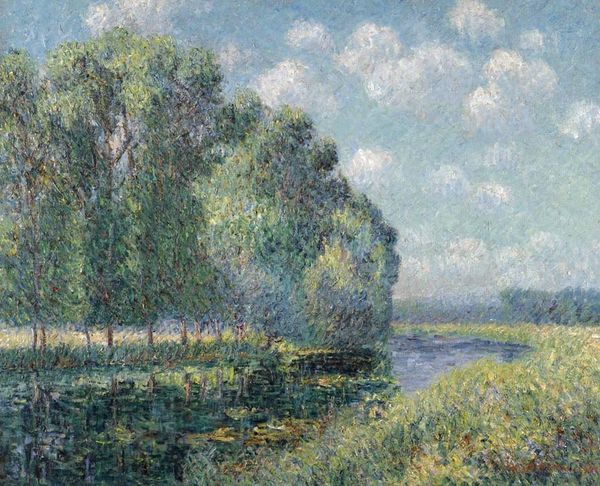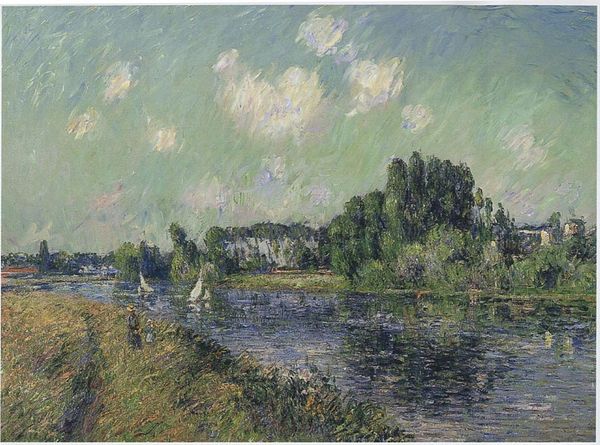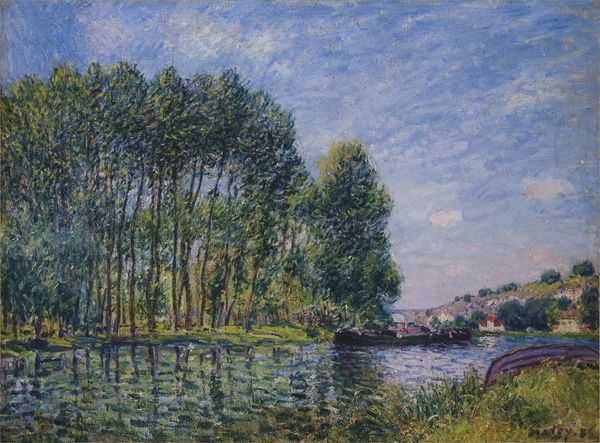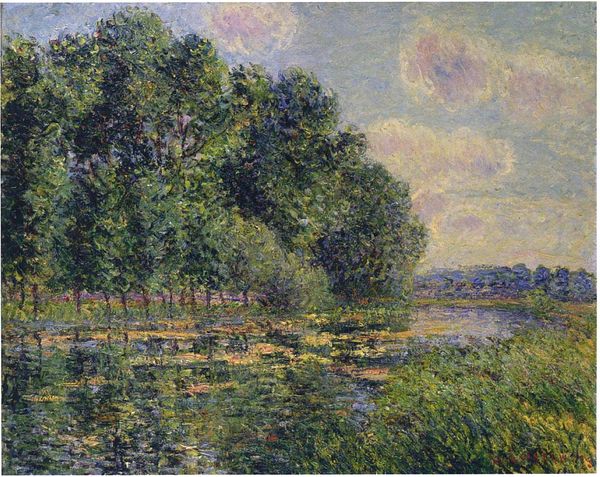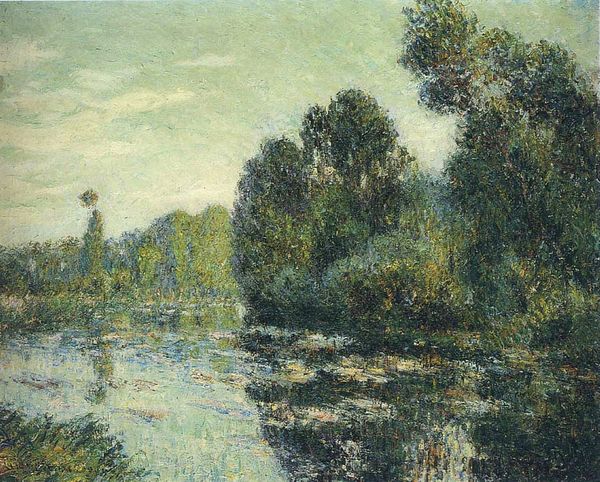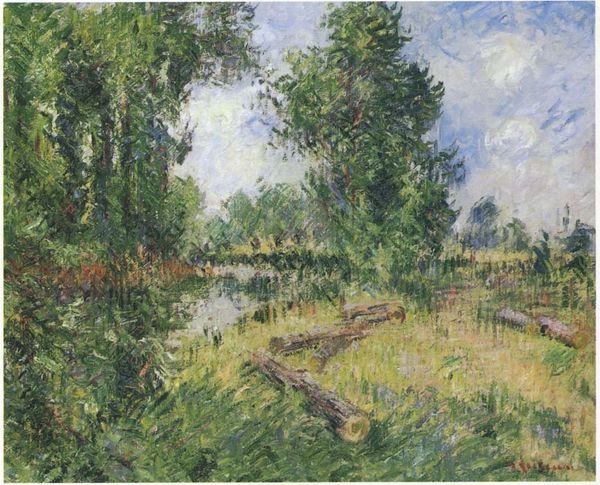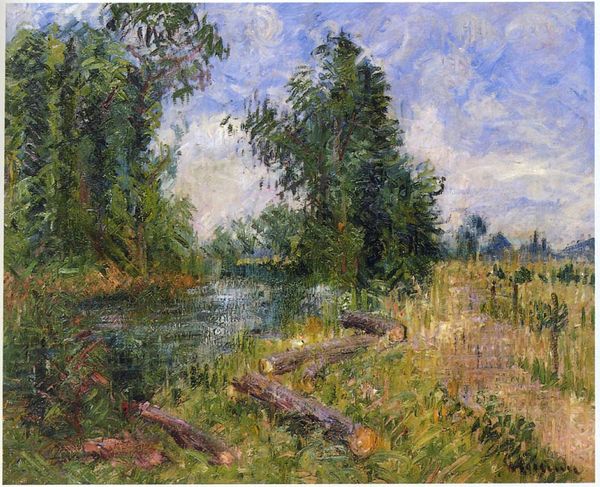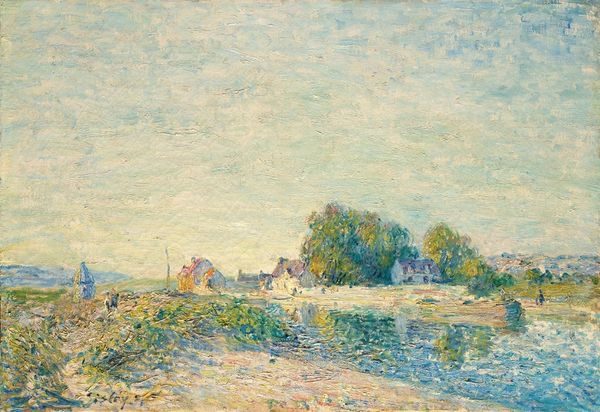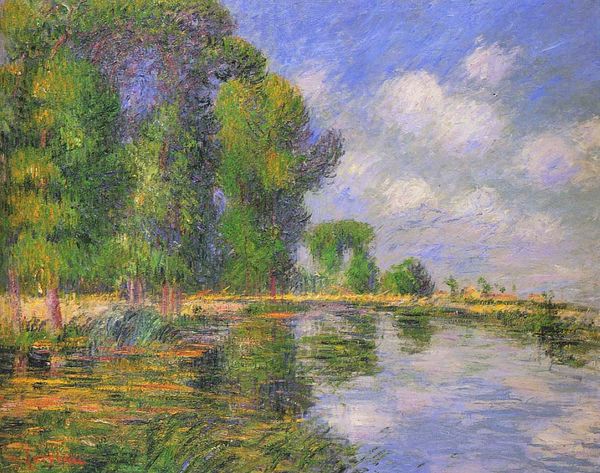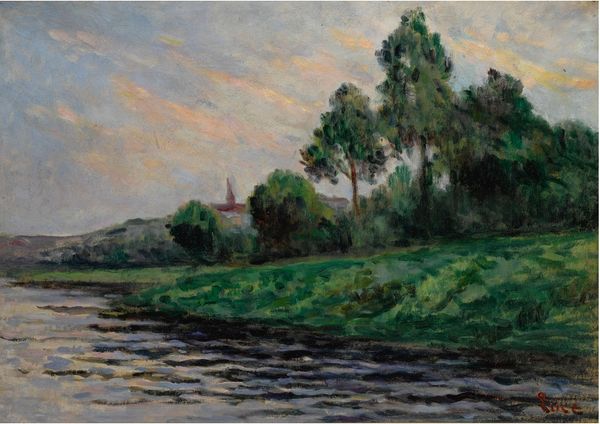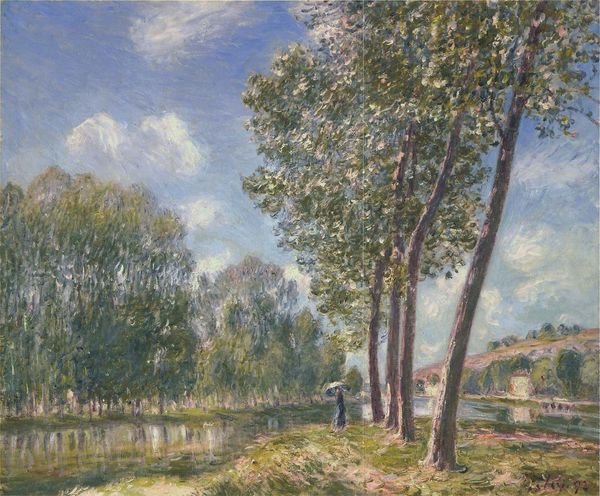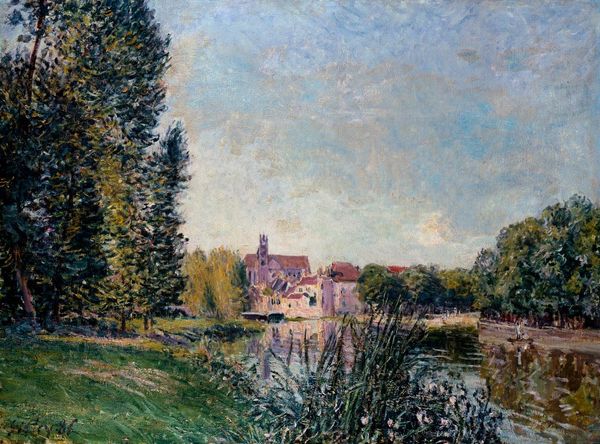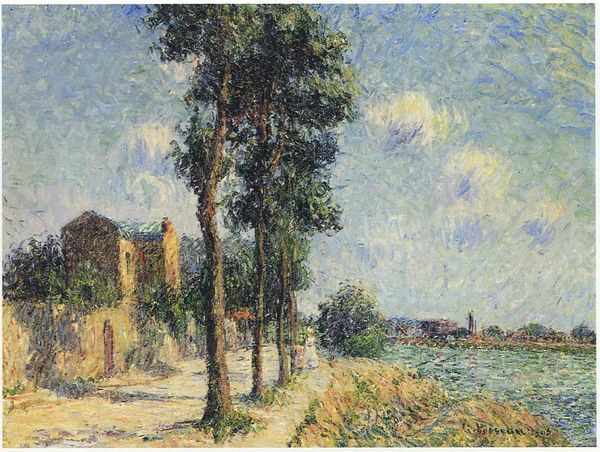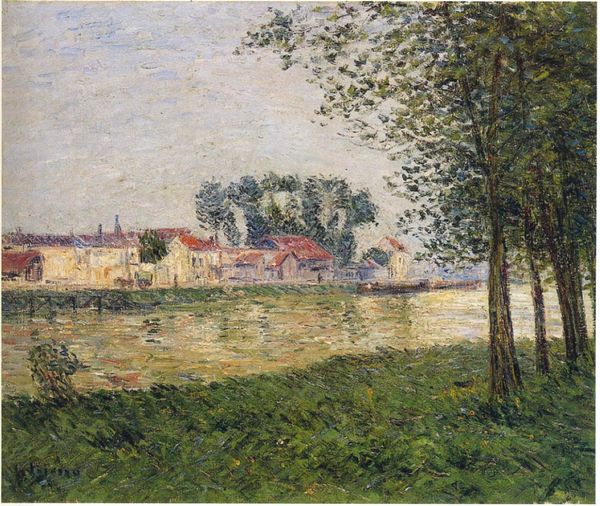
Copyright: Public domain
Curator: "The River," painted in 1902 by Maxime Maufra, presents us with a tranquil waterside scene, executed, as you can probably guess, in oils on canvas. Editor: Mmm, my first thought is… misty. Everything feels muted, dreamy, as if the world's holding its breath. And look at how the artist handles the reflections! The trees shimmer and dissolve into the water. It’s like looking into another dimension. Curator: Maufra, aligned with the Impressionist and Post-Impressionist movements, certainly had an affinity for capturing fleeting moments in nature, evident here through his application of plein-air techniques, working outside, directly responding to his environment. The overall feeling really embodies the transience of lived experience. Editor: It does, it feels melancholic. I can almost hear the rustling of leaves, the gentle lapping of water. It’s interesting how such a seemingly simple composition, a river, trees, some suggestion of houses, evokes such a potent emotional atmosphere. Was Maufra intentionally exploring the theme of human's relationship to the landscape, or was he more interested in the painterly process? Curator: It's a fair question, but probably the former! Looking at the period, industrialisation was rapidly transforming the landscape and artistic communities grappled with the changing relationship between the urban and the rural, or our experience of time as we entered into more complex systems of production. By representing it he is preserving that landscape. But of course, this is always a complex set of conditions. What he shows, how he frames it, it really influences what can be seen. Editor: That’s it! He isn't just preserving but crafting a feeling that perhaps speaks more profoundly about a sense of loss but it's complicated! Perhaps it’s about wanting the city, wanting new technology but fearing that it will mean the eradication of the landscape in its most intimate manifestations, such as the trees and reflections we can see here. So I am definitely holding on to my idea of a deeper, more emotive reflection in the artwork! Curator: Yes! In the end, this intimate, affective power of art and how it translates into something we share publicly is crucial, and why it must remain accessible! Editor: I totally agree! The best art helps us find language to describe the sensations, emotions, and ambivalences, so here is another piece for the collection of life experiences we accumulate through art!
Comments
No comments
Be the first to comment and join the conversation on the ultimate creative platform.
